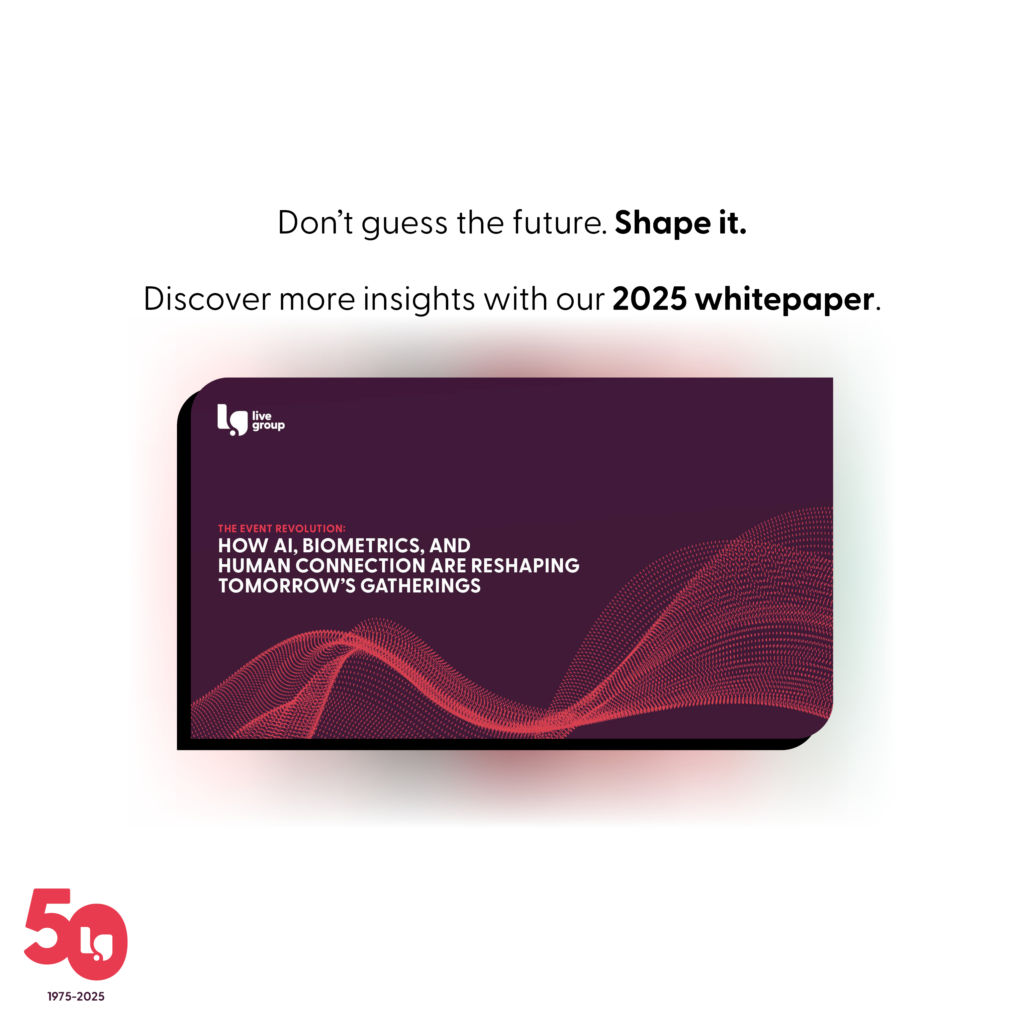Planning a CPD event can feel like spinning plates: balancing educational content, logistics, engagement, and measurable outcomes, all while keeping your audience awake after lunch.
For anyone working in events, marketing, HR, or government, CPD events aren’t optional; they’re a strategic investment in people’s growth. And when done well, they stick with attendees far beyond the sign-out sheet.
Here’s how to make them work.
What is CPD?
CPD – short for Continuing Professional Development – is simply about staying sharp. It’s the ongoing process of learning new skills, updating existing ones, and keeping pace with developments in your field. It’s not just corporate jargon that floats around performance reviews, it matters.
A CPD seminar is one of the most focused and effective ways to do this. Think of it as a short, structured, group-based learning session on a specific topic. It’s usually no longer than a day, and deliberately designed to be interactive – lots of discussion, small-group work and deep participation.
Done well, a CPD event gives professionals new knowledge, as well as the confidence to use it.
Why Organisations Run CPD Seminars
It’s easy to think of CPD as box-ticking: compliance training, mandatory refreshers, the kind of thing people politely endure. But for most organisations, it’s much more strategic than that.
Here’s why they invest in CPD events:
- Boosting capability: When industries evolve (and they all do), CPD keeps people’s skills current. That keeps organisations competitive.
- Retaining talent: Professionals who feel supported in their growth are more likely to stay. It shows commitment.
- Driving innovation: Exposure to fresh ideas through CPD seminars can spark new ways of thinking that ripple through teams.
- Meeting regulatory standards: In fields like healthcare, finance, and engineering, CPD is a legal or professional requirement.
If you’ve ever seen a brilliant team member stagnate simply because they weren’t challenged, you’ll understand why this matters. A CPD seminar can be the spark that gets people moving again.
What Makes a CPD Seminar Tick
CPD seminars share some key traits that set them apart from general training days or conferences:
- Short and Focused: Usually just a few hours or a single day, laser-focused on a defined subject.
- Group-Based: Kept to smaller groups, often around 20 people, to encourage active participation.
- Interactive: Expect breakout discussions, case studies, role play, or hands-on tasks. This isn’t a sit-back-and-listen affair.
- Networking-Rich: With the right structure, they can double as a place to connect and collaborate with peers.
They’re not about cramming as much information as possible into a day. They’re about sparking curiosity and giving people the tools to explore further on their own.

The Wider CPD Landscape: Beyond Seminars
Seminars are just one part of a much bigger CPD ecosystem. Depending on goals, formats can vary wildly:
- Conferences: Broader, multi-session events, often over several days.
- Webinars: Online, usually short and topic-specific, good for remote teams.
- E-learning courses: Self-paced modules for individuals.
- Workplace learning: Things like job shadowing, peer review, and mentoring.
- Professional activities: Speaking at events, writing articles, or joining professional bodies.
Almost anything that stretches your professional capability can count as CPD. Even reading industry journals over your morning coffee or volunteering in your community can qualify. It’s about intention and reflection as much as the activity itself.
Examples of CPD Activities That Actually Count
For clarity, here are a few things that can be logged as CPD:
- Attending webinars, seminars or formal courses
- Reading industry publications or research
- Mentoring or being mentored
- Shadowing experienced colleagues
- Engaging in reflective practice after a project
- Presenting at a conference
- Volunteering in a professional or community role
The mix depends on your sector and goals, but the principle is universal: learn, apply, reflect, repeat.
Why Event Agencies Are Brilliant at Running CPD Events
Planning a CPD event sounds simple on paper, but it’s rarely straightforward in practice. You’re juggling logistics, content, timing, and crucially, engagement. That’s where a specialist events agency comes in.
A strong agency won’t just handle the basics like venue booking or scheduling. They’ll work with you on strategy, designing the experience so it resonates. They can:
- Curate engaging speakers and facilitators
- Build interactive formats that keep energy high
- Manage hybrid delivery for dispersed teams
- Track engagement and feedback to measure impact
And here’s where it gets even better. The best events agencies will use audience profiling to understand your audience’s unique learning styles and develop personalised learning paths. This approach is proven to spark deeper engagement with content — and lead to better learning outcomes for your team.
Live Group’s proprietary technology, Envoku and AudienceDNA, gets to the heart of your audience’s needs, helping you shape diverse learning journeys that feel tailored, relevant, and genuinely useful. Instead of everyone sitting through the same generic session, people get content in the way they learn best. That’s where CPD stops being a chore and starts becoming something people actually look forward to.
Making CPD Stick
Here’s the real trick: a CPD seminar isn’t just about what happens on the day. The real value comes from what people do with it afterwards.
Good event managers build in follow-up touchpoints: recap materials, discussion forums, or even informal coffee catch-ups. This is how to keep momentum going. They help attendees turn that burst of learning into lasting behaviour change.
Because when people come back to work inspired and ready to try something new, that’s when CPD starts to pay off.
CPD Events: Bringing It All Together
Planning CPD seminars might seem like just another task on the calendar, but they can be game-changers when treated as part of a bigger learning journey. For event professionals, they’re an opportunity to blend logistics with learning design, curating experiences that sharpen minds and strengthen teams.
And for organisations? They’re a signal. A way to show people that their growth matters.
Handled well, a CPD event can be more than just another training day. It can be the spark that reminds people why they love what they do, as well as what they’re capable of next.
CPD stands for Continuing Professional Development. It’s the process of ongoing learning that helps professionals keep their skills, knowledge, and expertise up to date throughout their careers.
CPD activities vary, but the goal is always the same: to improve professional competence. This could mean attending a seminar, joining a webinar, completing an online course, shadowing a colleague, or even reflecting on your own work to identify areas for growth.
A CPD certification is formal recognition that you’ve completed a learning activity which qualifies as CPD. Many events, courses, and seminars provide certificates that prove you’ve earned CPD hours or credits, which can be useful for professional records and career progression.
CPD is important because it ensures professionals stay competent and confident in their roles. It supports career growth, helps organisations remain competitive, and, in some sectors like healthcare or finance, it’s essential for meeting regulatory requirements.
Yes, mandatory training can count as CPD if it contributes to your professional development. For example, health and safety refreshers or compliance courses may qualify, provided they add to your skills or knowledge base.
A CPD activity is any structured or informal learning that enhances professional ability. Examples include seminars, e-learning, conferences, mentoring, volunteering, or even reading industry articles. The key is that it helps you learn, apply, and reflect.
Ready to take the stress out of event planning?
Chat to us today about how our delegate management services can help bring your next event to life – on time, on budget, and beyond expectations. Whether you need full-scale delivery or targeted support, Live Group is here to help.
Download our latest report to explore the latest event solutions, learn how event production agencies are leveraging technology for seamless conference planning, and uncover strategies to enhance hybrid event management.






